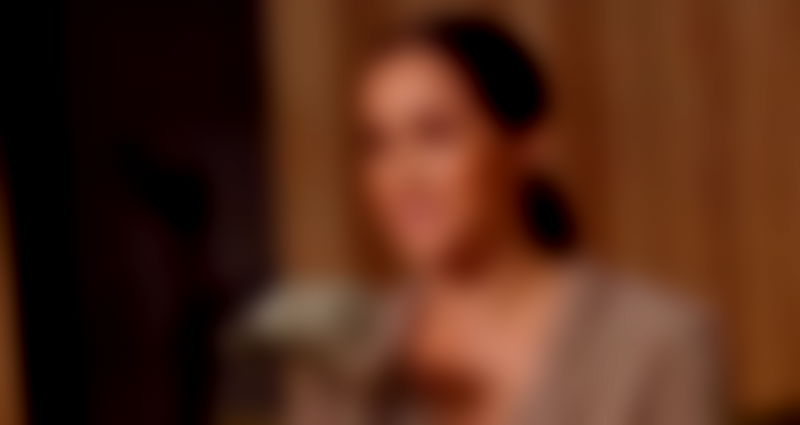Meghan Markle discusses ‘toxic stereotyping’ of Asian women on podcast with Lisa Ling, Margaret Cho


Joined by journalist Lisa Ling and comedian Margaret Cho, Duchess of Sussex Meghan Markle discussed the “toxic” stereotyping of Asian women on her podcast, “Archetypes.”
In Markle’s latest podcast episode, “The Demystification of Dragon Lady,” she broke down the trope of the “dragon lady,” a term coined in the 1930s to describe East Asian women who were powerful, sexual and domineering.
Markle opened the episode by recalling the diverse cultures she experienced while growing up in Los Angeles, noting that “the multitude of Asian cultures was a huge part of that.”
“My weekends were spent in Little Tokyo or having iced teas in Thai Town, or sitting with my friend Christina Wong and her parents at a Chinese restaurant,” she said.
She also recounted going to Korean spas with her mother as a teenager.
“It’s a very humbling experience for a girl going through puberty because you enter a room with women from ages 9 to maybe 90, all walking around naked and waiting to get a body scrub on one of these tables that are all lined up in a row,” Markle said. “All I wanted was a bathing suit. Once I was over that adolescent embarrassment, my mom and I, we would go upstairs, we would sit in a room and we would have a steaming bowl of the most delicious noodles.”
Markle went on to criticize films such as “Austin Powers” and “Kill Bill,” which she said presented caricatures of women of Asian descent as “oversexualized or aggressive.”
“The dragon lady — the East Asian temptress whose mysterious foreign allure — is scripted as both tantalizing and deadly,” she noted. “This has seeped into a lot of our entertainment. But this toxic stereotyping of women of Asian descent, it doesn’t just end once the credits roll.”
Cho, who is also an LGBT social activist and musician from San Francisco, added that the “Dragon Lady” stems from the “fantasy of Orientalism.”
“It’s actually a character that is similar to the femme fatale, in that a woman who is beautiful and deadly because we can’t just be beautiful, it has to come at a cost,” Cho said. “It’s kind of like evil queen adjacent, but it’s also pinned to this idea that Asian-ness is an inherent threat. That our foreignness is somehow going to get you. The mystery and the exoticism of it is part of it. And unfortunately, that trope has really stuck to film, but also to Asian American women or Asian women.”
Ling, an award-winning broadcast journalist, shared her experience in searching for a sense of belonging while growing up in California.
“To be honest with you, the reason why I pursued broadcast journalism at all was because growing up, it’s the only path that I thought was available to me. I was someone who grew up in a broken home,” Ling said. “My parents were divorced when I was 7, and the television was always on in my home. It was like my favorite babysitter. And I used to have these fantasies of being part of it somehow, because I thought, if I can get on TV, maybe I will have a better life one day. But no one looked remotely like me on TV, except for Connie Chung.”
Ling also recalled an instance of racism she experienced in the workplace. Shortly after she was named in Rolling Stone’s Hot List for her reporting at Channel One, an individual at her place of work cut out the article and “drew slanted eyes over the eyes and wrote ‘yeah, right’ and then put it back in my mailbox.”
“It was like every kernel of excitement that I possessed just withered away,” Ling recalled. “It was so devastating that someone that I would see every day in my place of work where we’re supposed to feel comfortable, just harbored those feelings about me and had the nerve to make it racial.”
In the end, Markle urged her listeners to be their “best and true self” regardless of the societal frameworks that are imposed upon them.
“Be yourself. You are so much greater than any archetype,” Markle concluded.
Featured Image via @spotifypodcasts
Share this Article
Share this Article
